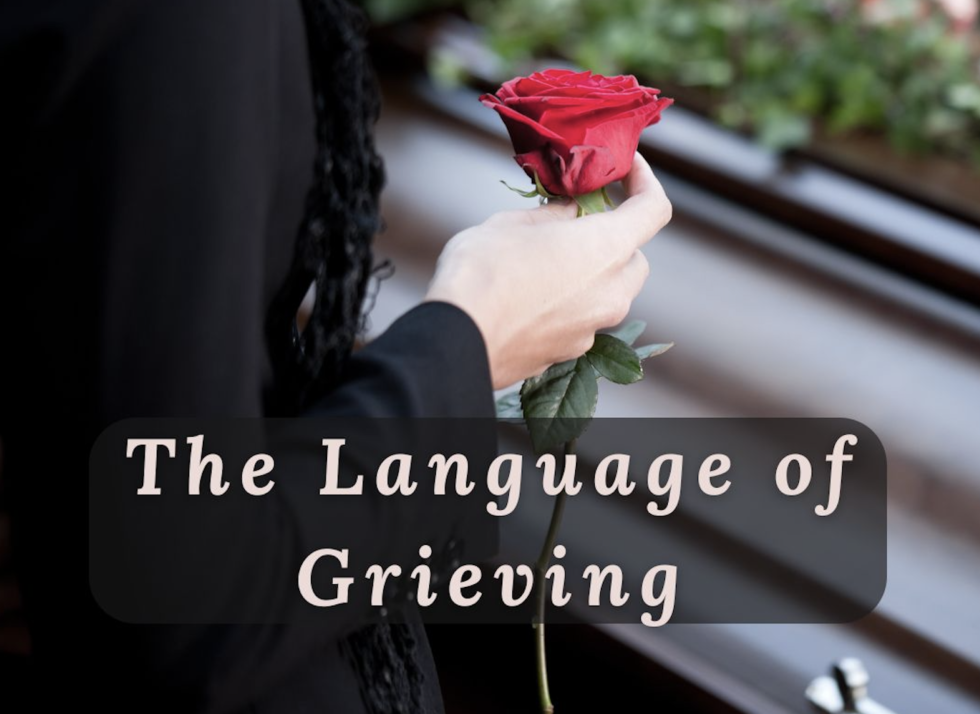
By Chandrama Anderson, MFT
Connect2 Marriage Counseling
The Language of Grieving Guide covers both words that offer comfort, and words, while well intentioned, may be resented by or stifle the grieving person or make the journey through grief more difficult.
Acknowledge the Loss. Saying nothing, or pretending the death didn’t happen hurts the person.
Show that you care. Immediately following a death, a bereaved person needs to have the death acknowledged, to have empathy, care and support offered, and most importantly, to hear words that allow them to feel whatever they are feeling at the moment. Sharing stories and memories of the person that has died—and using his or her name, whether in person or in a note—are greatly appreciated.
Allow the grieving person to take the lead in conversations. To help comfort someone, keep in mind that it’s helpful for the bereaved to talk with you as they normally would. Laughter is okay, too.
The Narrative of Grieving is the story told by the bereaved person of the death of a loved one. The goal and intent of the Narrative of Grieving is for the bereaved to try to make sense of the death. Often, the bereaved need to tell their stories repeatedly as they work through their grief and mourning.
Remember the loved one. Whether one is an acquaintance or a close friend, talking about the person that has died helps for two reasons: first, because the bereaved often feel isolated, and secondly even though their loved one is dead, it helps to know that he or she has not been forgotten. This could be as simple as, “I was thinking about you and your wife the other day, and that she taught you about gardening.” Often asking permission makes a discussion less awkward for the person consoling the grieving person, “Is it okay with you if I talk about your wife once in a while?”
The journey through grieving has no road map or timetable. Over time, people close to the bereaved become part of a support system as the journey through grief progresses. Being with the bereaved and asking something as simple as, “How are you feeling today?” honors the bereaved in the process of grieving. Remembering and talking about the loved one on important dates such as birthdays, anniversaries, and holidays, brings solace and comfort to the bereaved.
Avoid religious platitudes. While saying, “It was God’s will,” may comfort some people, this statement and other religious platitudes may deny permission for the bereaved to feel what they feel—if it’s fine with God, then it’s supposed to be fine with me.
What to say (and Not say) to Comfort your Friend or Loved One
Words that do comfort
Do Say:
I can only imagine how much pain you must be feeling.
You look great ... how are you feeling today?
How about if I bring you dinner on Tuesday? (Make specific offers.)
I don’t know what to say, but I know this must be very difficult for you.
I’m so sorry. This is one of the things in life that can’t be explained.
You’ve been through a lot; over time you’ll feel better than you do now.
This must be a bewildering and complicated time. It must be hard for you.
It seems so natural to cry at a time like this.
Was your mother ill for a long time?
If I were in your shoes, I think I’d feel that way too.
One of my favorite memories of your daughter is ...
How do you feel when you’re alone?
Do you feel like talking for a while?
Tell me about your (be specific about their loved one).
Without her, what is your life like?
I’m thinking of you, and I want to help.
When do you miss him most?
I’m here for you, whatever you’re feeling right now.
Can decisions about your future wait?
I know you will always love your daughter.
Words that do not comfort
Do Not Say:
I know just how you feel. (You can’t know exactly; and it won’t ring true.)
You look great ... you must be feeling fine.
Let me know if I can do anything.
(Above all, don’t pretend it didn’t happen.)
Oh, how awful.
Why are you torturing yourself by going over and over this?
Time will heal you.
Think of all you have to be thankful for.
He wouldn’t have wanted you to be sad.
Just be happy that she’s out of her pain.
Be strong; you’re holding up so well.
He lived a long life. Now he’s in a better place.
Keep busy.
You shouldn’t still be feeling this way.
Try not to think about it.
You must get on with your life.
This is a blessing.
Now you have an angel in heaven.
Feeling that way won’t help a thing.
You’ll get married again.
You can always have more children.
Used with permission from chandramaanderson.com


